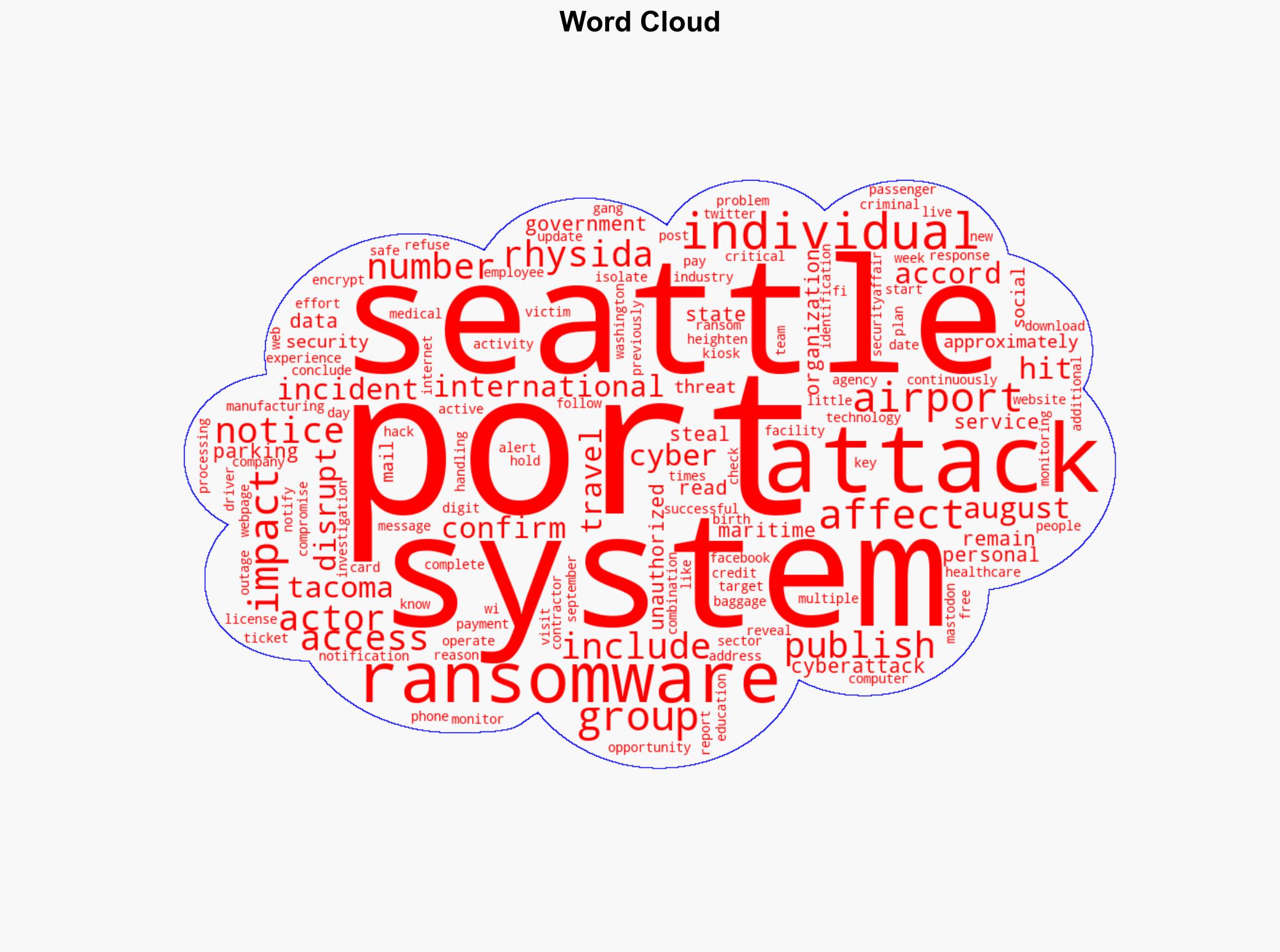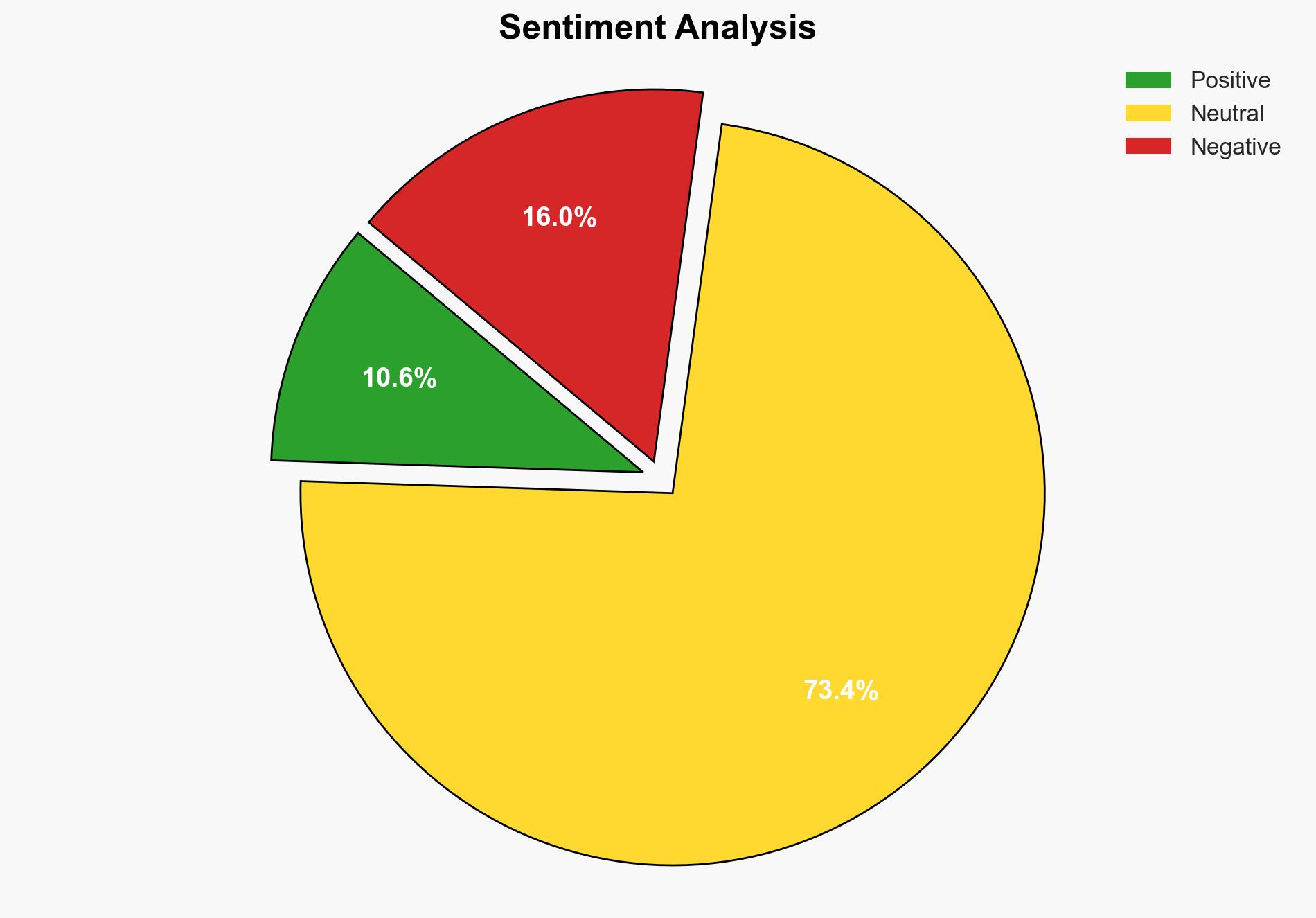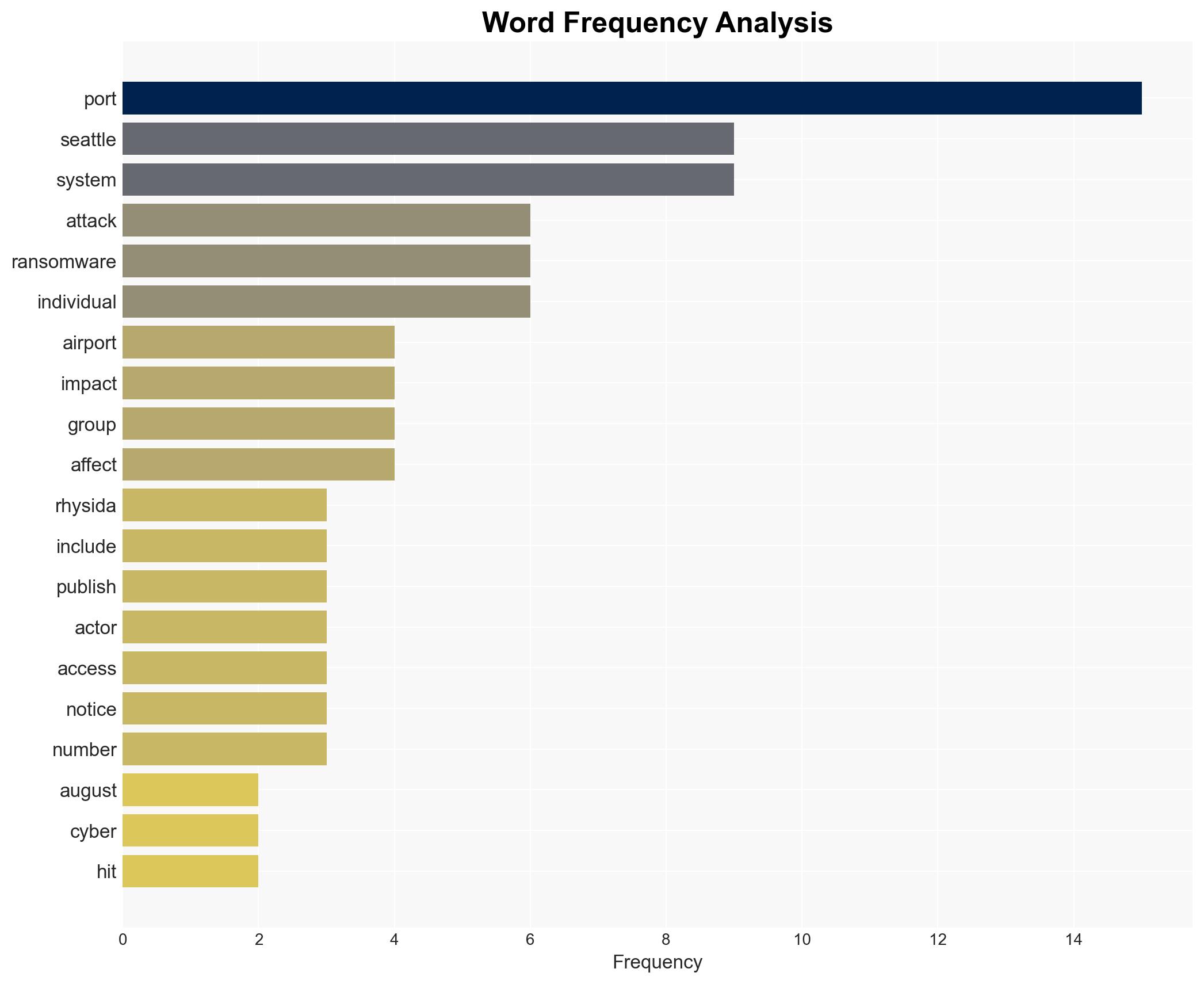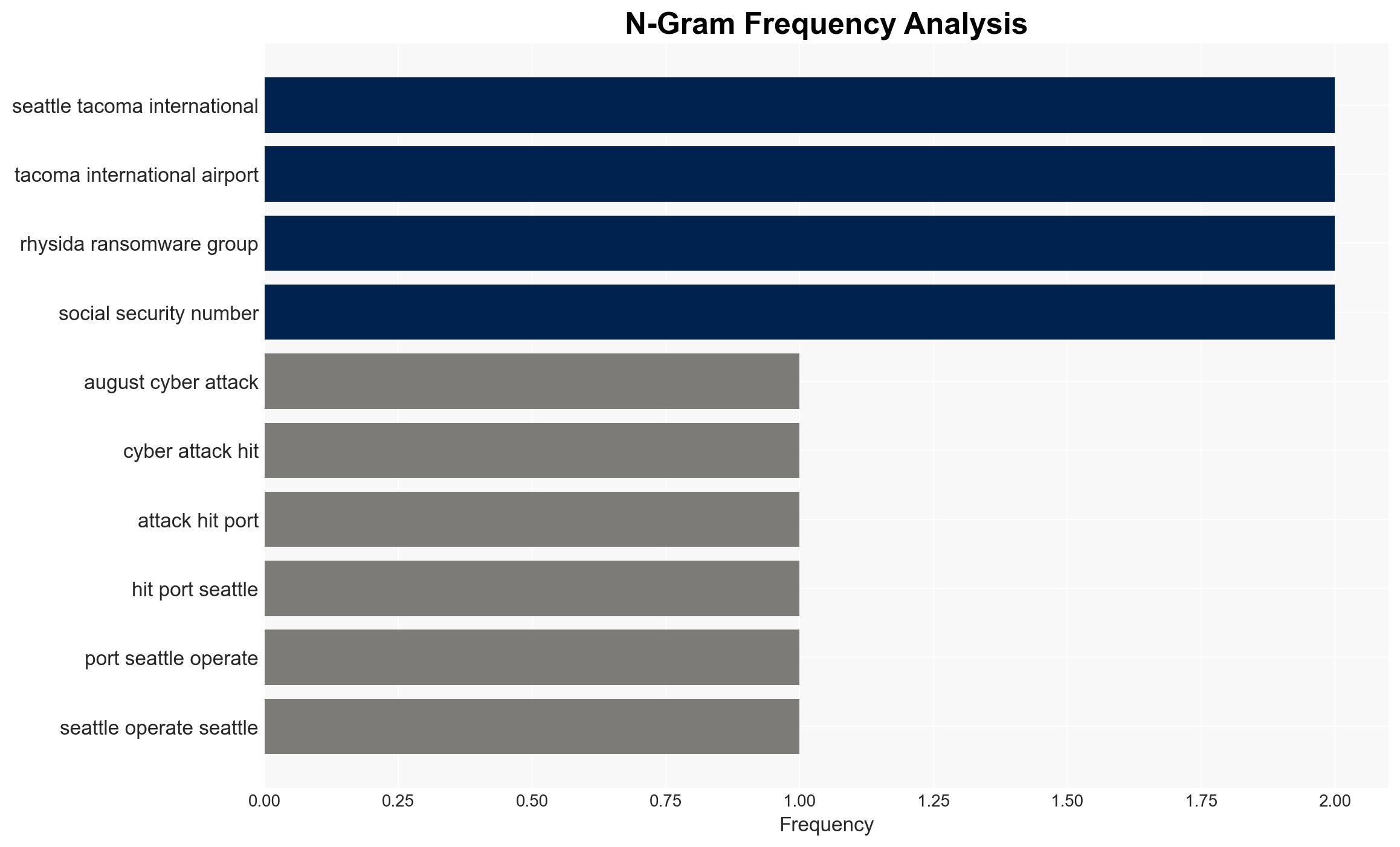Port of Seattle s August data breach impacted 90000 people – Securityaffairs.com
Published on: 2025-04-05
Intelligence Report: Port of Seattle’s August Data Breach Impacted 90,000 People – Securityaffairs.com
1. BLUF (Bottom Line Up Front)
The Port of Seattle experienced a significant cyber attack in August, attributed to the Rhysida ransomware group, affecting approximately 90,000 individuals. The breach disrupted critical services at Seattle-Tacoma International Airport, including baggage handling and ticketing systems. The Port has refused to pay the ransom, resulting in the publication of stolen data. Immediate measures are recommended to enhance cybersecurity protocols and protect sensitive information.
2. Detailed Analysis
The following structured analytic techniques have been applied for this analysis:
General Analysis
The cyber attack on the Port of Seattle highlights vulnerabilities in critical infrastructure systems, particularly those related to transportation and public safety. The Rhysida ransomware group, known for targeting various sectors, executed the attack, leading to significant operational disruptions. The breach exposed personal information, including names, dates of birth, social security numbers, and driver’s license numbers, raising concerns about identity theft and privacy violations.
3. Implications and Strategic Risks
The incident underscores the growing threat of ransomware attacks on critical infrastructure, posing risks to national security and regional stability. The disruption of airport operations can have cascading effects on economic activities and public trust. The exposure of sensitive personal data increases the risk of identity theft and fraud, potentially impacting affected individuals and organizations.
4. Recommendations and Outlook
Recommendations:
- Enhance cybersecurity measures across critical infrastructure sectors, focusing on proactive threat detection and response capabilities.
- Implement regular security audits and vulnerability assessments to identify and mitigate potential risks.
- Strengthen data protection policies and provide training for employees on cybersecurity best practices.
- Consider regulatory changes to enforce stricter cybersecurity standards for critical infrastructure.
Outlook:
In the best-case scenario, the Port of Seattle and other critical infrastructure entities will bolster their cybersecurity defenses, reducing the likelihood of future breaches. In the worst-case scenario, continued vulnerabilities could lead to more frequent and severe attacks, with broader implications for national security and economic stability. The most likely outcome involves a gradual improvement in cybersecurity measures, driven by increased awareness and regulatory pressure.
5. Key Individuals and Entities
The report mentions the Rhysida ransomware group as the primary actor behind the attack. The Port of Seattle is the affected entity, with significant implications for the Seattle-Tacoma International Airport and related services.




